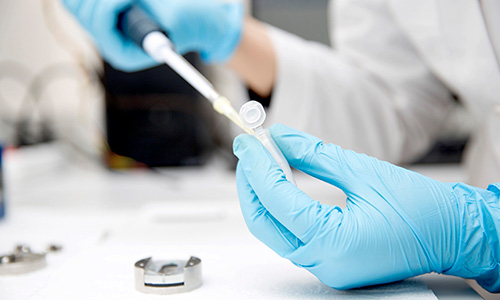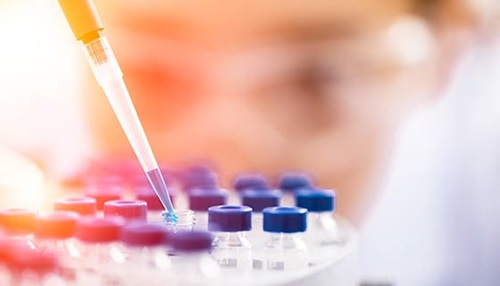What Does It Feel Like to Have Coronavirus
Coronavirus Diagnosis: What Should I Look?
Reviewed By:
Updated on January 24, 2022
Having COVID-xix varies greatly from one person to another. What happens if you are diagnosed with COVID-19? Lisa Maragakis, G.D., M.P.H., senior managing director of infection prevention, explains what to look.
What are the stages of coronavirus infection?
There are three general phases of infection with SARS-Cov-2, the coronavirus that causes COVID-xix.
Incubation period. This is the time betwixt getting infected and when symptoms appear. In general, you may see symptoms starting time two to 14 days later infection. The incubation period varies amidst individuals, and it varies depending on the variant. Fifty-fifty though yous do not have symptoms in the incubation menstruum, you tin can transmit the coronavirus to another person during this phase.
This is why, if you suspect you were exposed to someone with COVID-nineteen, you should self-quarantine, sentry for symptoms and consider getting tested four or v days post-obit the exposure. This way, you can help foreclose the spread of COVID-nineteen. Please review Centers for Disease Control and Prevention (CDC) guidelines for isolation and quarantine.
Acute COVID-19. Once symptoms appear, y'all have entered the acute phase. You may have fever, cough and other COVID-xix symptoms. Active disease tin terminal one to two weeks if yous have mild or moderate coronavirus disease, but severe cases tin last months. Some people are asymptomatic, pregnant they never accept symptoms but do have COVID-19.
If you develop symptoms or suspect yous are asymptomatically infected, call your wellness care provider, follow testing guidelines, and follow all isolation and safe guidelines.
COVID-19 recovery. Post-COVID-19 symptoms, such every bit lingering cough, on and off fever, weakness, and changes to your senses of smell or taste, can persist for weeks or fifty-fifty months after you recover from acute affliction. Persistent symptoms are sometimes known as long COVID-19.
Exam results may remain positive for weeks to several months following infection, only this does not necessarily hateful yous are still infectious. Most people are no longer infectious beyond the recommended isolation precautions menstruation. If you have conditions that crusade severe immunosuppression, contact your health care provider to determine how long y'all should isolate and how to determine when y'all are no longer potentially infectious to others.
What are COVID-19 symptoms?
Symptoms can be astringent, mild or absent altogether. Some people recover from COVID-19 with no problems, while others are left with lingering furnishings, and withal others require hospitalization or die from complications due to COVID-19.
If y'all accept whatever of the following symptoms, call your physician. He or she will say whether you need a examination and recommend what yous should exercise.
- Fever or chills
- Cough
- Shortness of jiff or difficulty breathing
- Fatigue
- Musculus or body aches
- Headache
- New loss of gustatory modality or odour
- Sore pharynx
- Congestion or runny olfactory organ
- Nausea or airsickness
- Diarrhea
Severe COVID-nineteen — When to Call 911
You lot should call 911 or an emergency care facility if you feel whatever severe symptoms, including:
- Difficulty breathing
- Persistent pain or pressure level in the chest
- New confusion
- Inability to wake up or stay awake
- Blue lips or face up
Exist sure to tell the 911 dispatcher or emergency room if you take been exposed to or diagnosed with COVID-19.
How long do COVID symptoms last?
Those with a mild example of COVID-19 usually recover in 1 to two weeks. For astringent cases, recovery can take six weeks or more, and for some, there may be lasting symptoms with or without damage to the center, kidneys, lungs and brain.
Tin I get COVID-nineteen more than once?
Yes. Re-infection with the coronavirus, specially with one of the coronavirus variants, is possible if y'all previously had COVID-19.
The all-time protection is to get fully vaccinated and receive a booster when eligible, wear a face up mask in public, practice concrete distancing and wash your easily frequently.
Will I go COVID-nineteen pneumonia?
Some patients with COVID-19 develop pneumonia. Viral pneumonia, including that caused by COVID-19, cannot be treated with antibiotics. Some severe cases of COVID-19 may crave ventilator support to ensure the body is getting enough oxygen. Other medications, including antivirals, may besides exist administered.
People over age 65 and those with sure health weather are at a college risk of developing pneumonia and may experience more than severe cases of COVID-19. Studies show that in patients with COVID-nineteen, pneumonia may progress into acute respiratory distress syndrome (ARDS), which can be fatal in some patients.

Coronavirus (COVID-19) Email Alerts
Sign up to receive coronavirus (COVID-19) email updates from Johns Hopkins Medicine.
What is the treatment for COVID-19?
Treatment of COVID-xix involves addressing symptoms. If you are at risk for severe coronavirus disease, your dr. may recommend one or more COVID-xix treatments, but for most people with mild COVID-nineteen, balance and drinking enough of fluids are the best approach. Your md may also suggest y'all take over-the-counter medication for fever.
More severe cases require hospital care, including breathing support, mechanical ventilation, or other medical treatments.
After COVID-19, when is information technology safe for me to be around other people?
If yous are infected with COVID-19 or have been exposed to someone who is infected, it is very of import to split yourself from others and so that you do not spread COVID-nineteen further. The CDC provides recommendations on isolation and quarantine.
If I have COVID-19, how can I continue my family unit safer?
There are several means to help protect your family:
- Brand sure everyone in your family is fully vaccinated and has a booster when eligible.
- Anyone testing positive for the coronavirus should stay in one room away from other people in your home as much every bit possible. Use a separate bathroom if 1 is available.
- If yous must be in the aforementioned room as other people, you lot and they should article of clothing face masks. If you lot cannot wear a face mask (for some, face masks may cause trouble breathing), people who alive with you should not exist in the same room as you. If they practice enter your room, they should wear a face mask.
- Everyone should practice adept hygiene, including washing your hands frequently for at least 20 seconds and cough or sneezing into your elbow or a tissue (and then throwing the tissue abroad).
Hither are additional precautions:
- Do not share personal household items such every bit dishes, drinking glasses, cups, utensils, towels or bedding with other people, or with pets. After using these items, launder them thoroughly.
- All "high-touch" surfaces should be cleaned and disinfected daily, such as counters, tabletops, doorknobs, bathroom fixtures, toilets, phones, keyboards, tablets and bedside tables.
- Any surfaces that may have blood, stool or other body fluids on them should exist cleaned right away.
- Household cleaning and disinfectant sprays or wipes are constructive: You do not need special products. Be certain to follow the label instructions on the cleaning product for safe and effective use.
How can I care for my pets if I have COVID-19?
Co-ordinate to the CDC, the virus may spread from people to animals during shut contact, so it's best to follow the aforementioned rubber measures with your pet as you would with people.
- Avoid contact with your pet, including petting, snuggling, being kissed or licked, and sharing nutrient.
- When possible, have some other member of your household intendance for your animals while you are ill.
- If you must care for them, vesture a face mask and wash your hands before and after.

Coronavirus (COVID-19)
What yous need to know from Johns Hopkins Medicine.
wilsonjuspencesses.blogspot.com
Source: https://www.hopkinsmedicine.org/health/conditions-and-diseases/coronavirus/diagnosed-with-covid-19-what-to-expect
0 Response to "What Does It Feel Like to Have Coronavirus"
Post a Comment